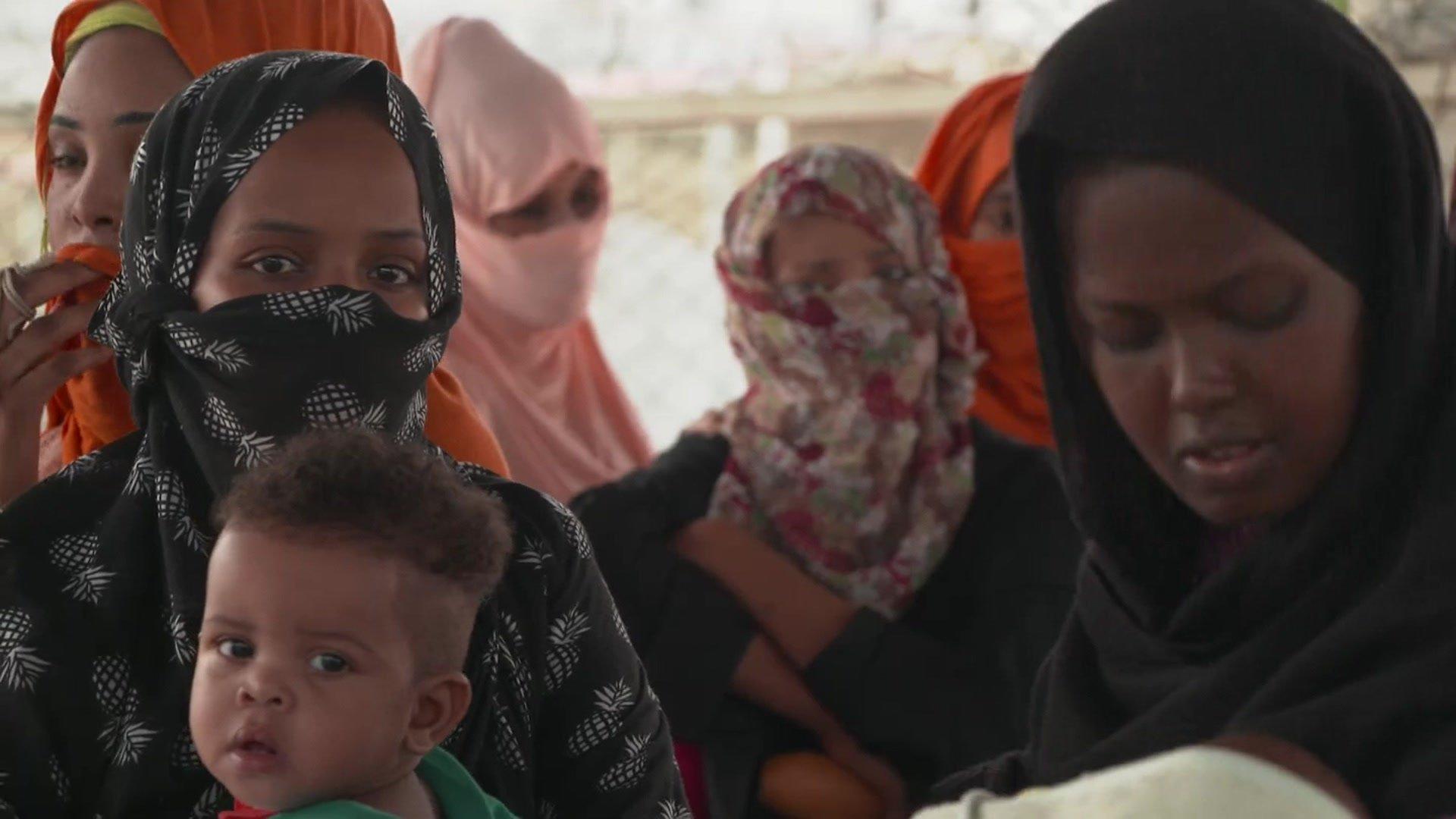Turkey risks falling deeper into Libya conflict as it deploys troops
- Published
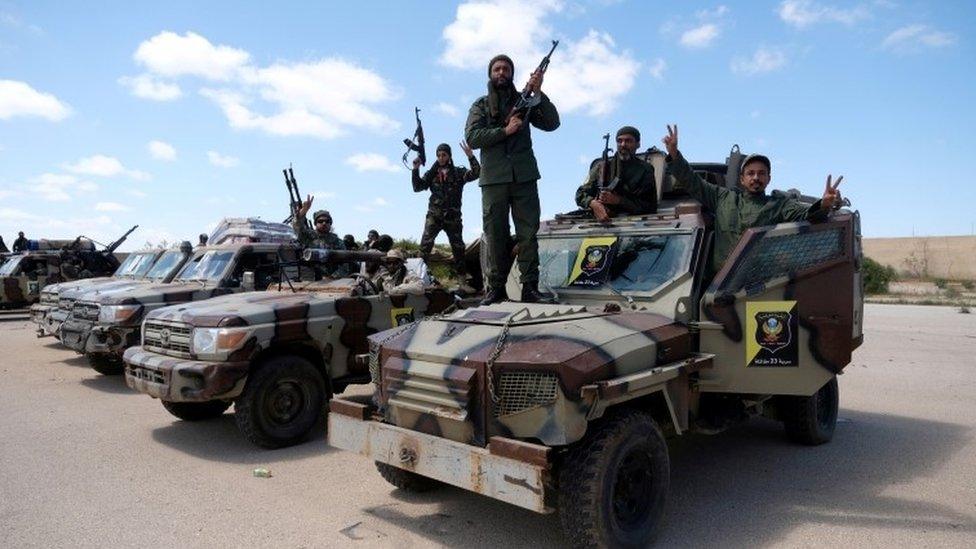
General Khalifa Haftar's Libyan National Army is the main opponent of the Tripoli government
Turkey risks becoming even more deeply embroiled in Libya's conflict and its decision to deploy troops marks a new stage in the internationalisation of the fighting.
Turkey has already supplied armoured vehicles to the UN-recognised Government of National Accord (GNA) in Tripoli and also operates drones on its behalf.
Turkish troops will apparently be deployed in a "training and advisory" role. But this is a highly flexible description. If the Tripoli Government has its back to the wall, then Turkey may be compelled to take a more direct hand in the fighting. At the very least the exact role and purpose of the Turkish deployment is yet to be defined.
The civil strife in Libya which intensified in April of last year with a renewed assault by the Tripoli Government's main opponent - General Khalifa Haftar's Libyan National Army - is increasingly taking on the appearance of a proxy war, with a variety of external actors picking sides and playing out their own regional ambitions.
In this sense, the conflict resembles the much greater catastrophe in Syria, but it looks clear that we will be hearing a good deal more of the Libya crisis and Turkey's broader role in the region in the coming months.
BBC Arabic found videos of bodies being desecrated by fighters loyal to strongman Khalifa Haftar.
It should be simpler than this. It is the government in Tripoli after all that has UN recognition. And there is an arms sales embargo (subsequently somewhat relaxed in favour of the Tripoli government) intended to draw the sting from the conflict.
But the reality is very different. The Tripoli government has Western backing. But its principal opponent Gen Haftar has received significant financial support from the UAE as well as armoured vehicles from both Jordan and the UAE.
The Emiratis have also deployed sophisticated Chinese supplied Wing Loong 2 unmanned aerial vehicles (UAV's) which a UN report blames for a significant proportion of the civilians killed in Gen Haftar's offensive.
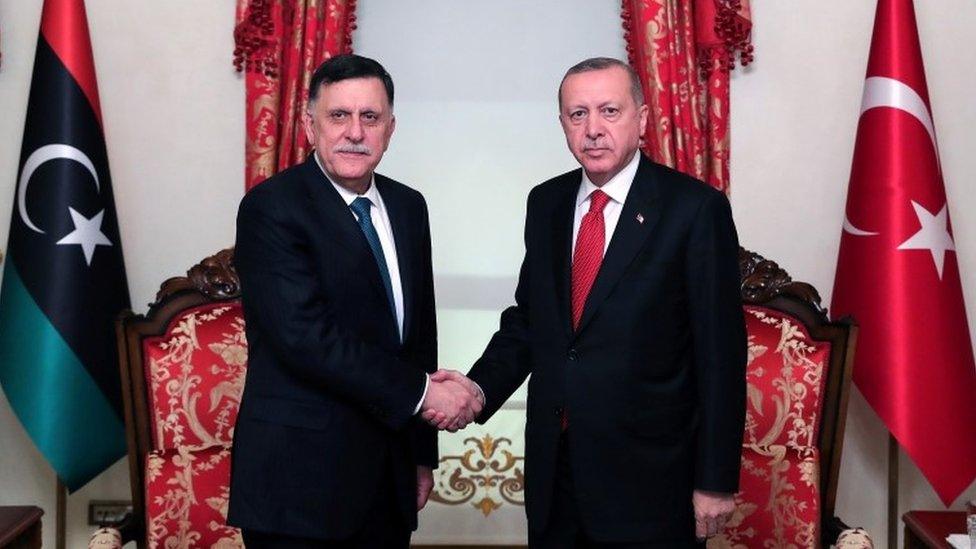
The forces of Gen Haftar have been trying to capture the capital city from the GNA, led by Prime Minister Fayez al-Serraj, seen here on the left with Turkish President Recep Tayyip Erdogan
Gen Haftar has also had support from Egypt and direct military assistance on the ground from "semi-official" Russian military contractors along with Sudanese and Chadian mercenaries. Indeed Russian snipers have reportedly had a significant local impact on the front line.
The US believes that Russian air defences may also have been provided to Gen Haftar's forces. Washington insists that last November one of their UAVs was brought down by Russian missiles. The US operates over Libya against remnants of IS - a further illustration of the complex and fractured situation on the ground. Russia denies it has any active role in the fighting.
Libya's tragedy is a familiar story. The country's trajectory was set when the US joined a Western air campaign, spear-headed by the British and the French, to oust the country's long-time ruler Muammar Gaddafi in 2011.
A subsequent UN effort - punctuated by periods of civil strife - eventually brokered an agreement that produced the GNA in Tripoli, but eastern forces under Gen Haftar refused to come on board.
In the absence of a decisive external diplomatic effort, the crisis continues. Russia, which opposed the West's efforts to overthrow Gaddafi, is eager to re-establish its influence. Egypt's leader Abdel Fatah el-Sisi clearly regards Gen Haftar as an anti-Islamist, military strongman in his own mould.
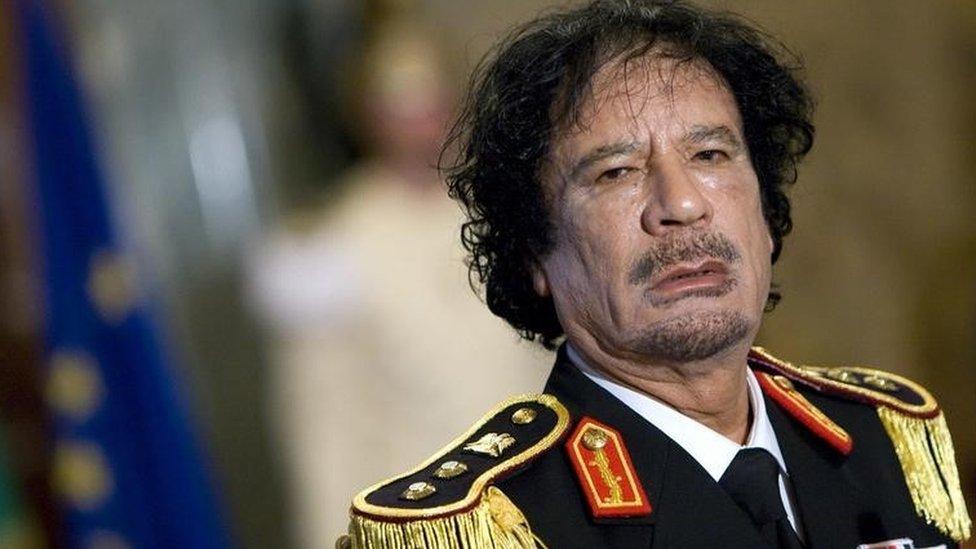
General Muammar Gaddafi was killed in 2011
Turkey, of course, will insist that it is acting to support an internationally recognised government in Libya. The Turks have rightly been frustrated with some of their Nato allies' willingness to try to have it both ways. France for example nurtures ties with Gen Haftar and the US has hardly followed an unambiguous line on the conflict.
But President Erdogan's activism also clearly has a broader strategic dimension. Turkey sees Libya as part of its wider hinterland in the eastern Mediterranean and an important economic gateway to Africa. It has few friends in the region.
Turkey's support for the Muslim Brotherhood drew implacable opposition from Egypt's military government. Relations between Israel and Turkey - once close - went into the freezer ages ago. And long-standing differences with fellow Nato member Greece over Cyprus have now been exacerbated by a new tension - energy.
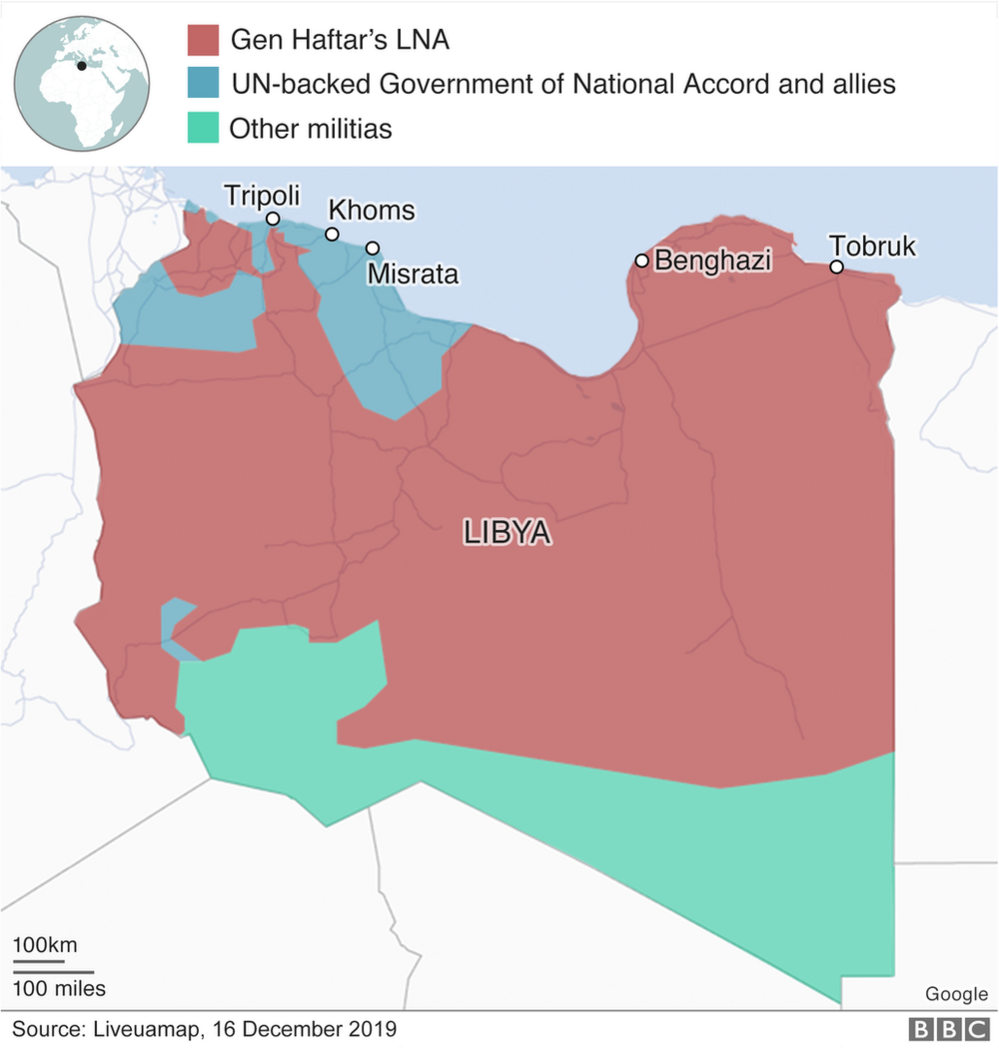
In November, Ankara signed a maritime delimitation agreement with the Tripoli authorities which brings Turkey's claimed exclusive economic zone in the eastern Mediterranean to the edge of that claimed by Libya.
These claims are widely contested. But the Turkish move sends a signal to other energy players in the region, complicating access for gas pipelines to Europe, unless Ankara is brought into the equation.
This was seen by analysts as a direct effort to counter Israel, Egypt, Greece and Cyprus, who have established an Eastern Mediterranean Gas Forum. Indeed Turkey's more aggressive oil exploration off Cyprus with armed drones "riding shotgun" for its survey vessel is all part of this new activism.
Turkey's Libyan gambit threatens to precipitate a broader crisis in the eastern Mediterranean that in turn could complicate Turkey's relationships with both Moscow on the one hand and Washington and key Nato allies on the other. It will make existing regional tensions worse.
Turkey will hope that at the very least its military role in Libya will ensure a stalemate in the fighting, ensuring that Ankara has a say in any final outcome.
Over the last six months at least 1,000 people have been killed, including around 100 civilians and 120,000 displaced
- Published21 October 2011
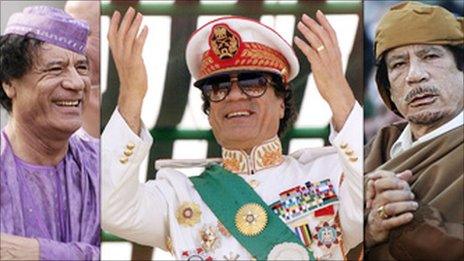
- Published5 May 2019
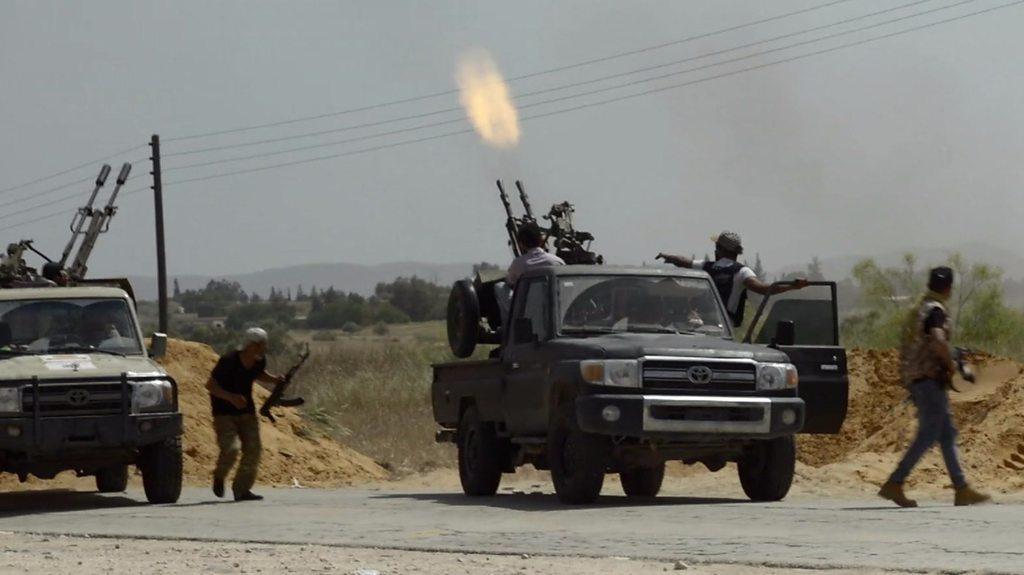
- Published1 May 2019
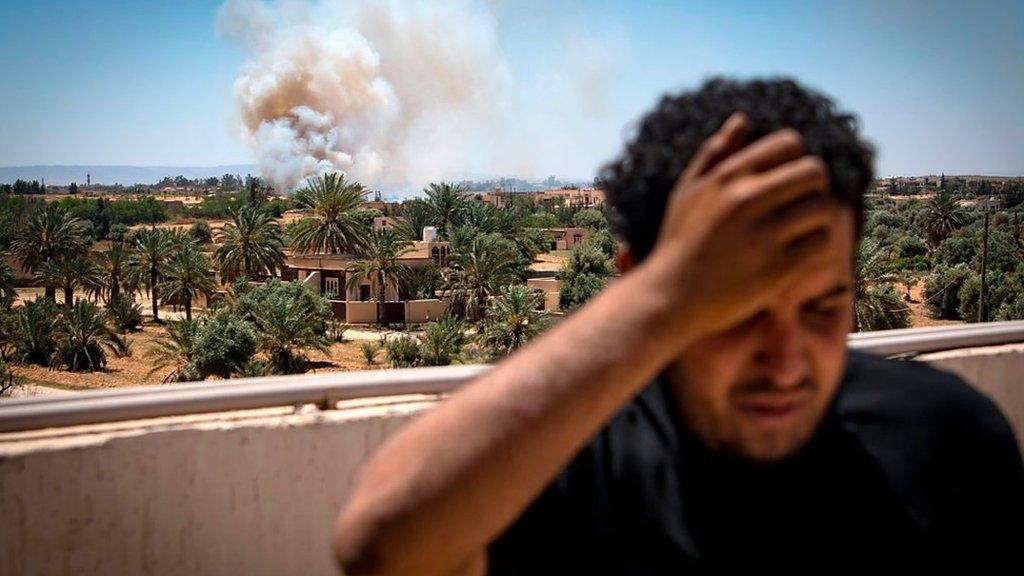
- Published23 October 2019
